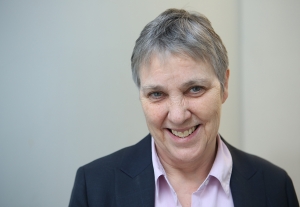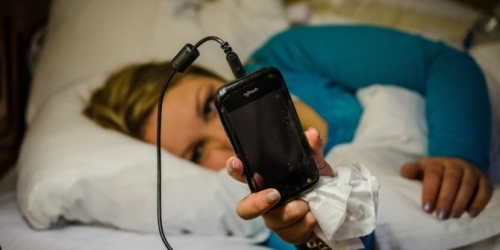 As part of Women’s History Month at LSE, Professor Jennifer Brown – visiting professor and co-director of the Mannheim Centre – spoke with Dr Maria Norris of LSE’s Equity, Diversity and Inclusion (EDI) team about the different treatment of women and men in the criminal justice system, the growing pressures faced by young academics, and the need for a zero-tolerance approach to sexual harassment in the workplace.
As part of Women’s History Month at LSE, Professor Jennifer Brown – visiting professor and co-director of the Mannheim Centre – spoke with Dr Maria Norris of LSE’s Equity, Diversity and Inclusion (EDI) team about the different treatment of women and men in the criminal justice system, the growing pressures faced by young academics, and the need for a zero-tolerance approach to sexual harassment in the workplace.
Maria Norris: What do you think women bring to the study of social policy and criminology?
Jennifer Brown: Women academics try to put women in the frame of analysis, especially in Criminology. Until about 20 years ago women were just absent from any criminological analysis. It wasn’t until a former LSE student, Frances Heidensohn, who later became a professor at the LSE, in the mid-1980s wrote the first real analysis of women and delinquency. She is credited with forming a feminist criminology. Before that, women were not studied at all, or they were just subsumed in the general population of empirical research. What feminist criminology established was that women’s experience of crime, both as perpetrators and victims, is very different to that of men. For example, many women have childcare responsibilities; they may be pregnant when they go to prison. Women are criminalised differently than men. Just think of prostitution, for example; women are more likely to be the target of police activity when it comes to clearing up red light districts, rather than the punters. Therefore, women have made a terrific contribution in thinking about the experience of girls and women within the criminal justice system, and how policy is not sensitive enough to relate to their needs.
Maria: Tell us about your work at the Independent Police Commission (IPC)?
Jennifer: The IPC was set up by Yvette Cooper when she was shadow Home Secretary. At the time, the Labour Party was working on developing policy regarding police reform. Yvette Cooper invited Lord Stevens, who was a former commissioner of the Metropolitan Police. I had worked with Lord Stevens when he was an Assistant Chief Constable with the Hampshire Constabulary. He wanted to mimic the work of a Royal Commission. It was very much about taking evidence from key stakeholders, key people with experience of policing. What Lord Stevens wanted was to have alongside the practitioner perspective, the latest thinking in academia. My job was to invite key academics from across the country, and feed their perspectives into the deliberations of the commission. I invited PhD students as well as colleagues because I was searching for new, up-to-date thinking. I thought their papers were so fantastic they needed to be in a book! That book now sits as the intellectual underpinning to the IPC’s report.
Maria: How did you become interested in the field of Forensic Psychology?
Jennifer: After I did my PhD, I had a number of short-term research contracts; all very interesting, but it is hazardous way to develop your career and a living. I left academia for a while and went to work for the police as a Research Manager at a time when the police were employing professional civilians to do work previously done by police officers. I was one of the first people to take up such a post and was able to establish a strong research base in that particular police force. That got me involved in policing issues. Several years later, I went back to academia and started running a course in Forensic Psychology at University of Surrey.
Maria: You mentioned the hazardous state of early academic contracts; do you think this affects female academics particularly?
Jennifer: I think it is a problem for all aspiring PhD students who want an academic career. If you have a PhD supervisor who is very research active and generates a fair amount of research funding and they want to hire you, that is very helpful. But you don’t want to spend the rest of your career as a research assistant, officer or fellow; you need to start focusing on your own work, which would mean getting on to the lecture/tenure track. And that transition is very difficult. If in the course of this transition women decide they want children, that will make it more difficult, as others will have more time than you to build a back catalogue of publications. You are in a double bind, really. One of the things the faculty track requires is not only publications, but also the generation of research income. If you are busy working on somebody else’s project and putting their research grant application together, then you don’t have the time to do your own work. And in any event, you are unlikely to have the tenure status that would allow you to be a grant holder in your own right.
The transition from being a hired hand to being an independent academic is very difficult. The demand on young academics is much greater than when I started my academic career. The advent of performance regimes, the development of the REF (Research Excellence Framework), the austerity pressures on academics to generate income. I mean, I was never particularly interested in finding money; if I had wanted to do this I’d have gone into the commercial sector. But the pressure on you has become so much greater. The funding market is also shrinking. I didn’t have this pressure when developing my career.
Maria: One of your research interests is police occupational culture and how it relates to stress. Do female officers experience stress differently than male officers? Are there similarities between the occupational stress of female officers and female academics?
Jennifer: What is interesting is the link between the occupational culture and stress. In organisations which are highly internally competitive – and certainly the academic world is like that – and where great store is set on individual achievement, the competitive spirit plays against collaboration and cooperation. Which is a real shame. The other issue is an ethos in which certain types of behaviour are tolerated. For example, if you want to be successful, then you are expected to arrive early, to work late. You’re expected to meet ridiculous deadlines – you’re expected to absorb extra demands. Otherwise you are not considered a fully paid-up member of staff. And if you want to have a life, or if you have extra responsibilities, as a woman this tends to be caring responsibilities, this can count against you. Even in more enlightened times and in enlightened families, the burden of domestic life still disproportionally falls on women. There is a disapproval if you don’t make the early morning breakfasts meeting, for example. This is true in academia, in the police, in medicine. These pressures are all potentially stressful.
There are two key differences between women’s experiences of stress in the police compared to men’s. The first is regarding the flexibility of working. Women were, and are so still, continuously frustrated about not having their worth recognised when trying to work flexibly. They are put under pressure as part-timers as they are perceived to be not committed fully to their jobs. If a man says he is leaving early to pick the children up from school, it’s a virtue. If woman says it, it is disloyalty to the organisation. The second big thing is the prevailing undercurrent of sexual harassment. I was very interested to read Dame Janet Smith’s analysis of the BBC. She cited the part played by the occupational culture, that still exists at the BBC today, to account for some of the excesses of Jimmy Saville and Stuart Hall as related to the general attitude present in the organisation: the language used, the demands made on women, the assumptions made about women, which are still there. This is also present in the academic world and many institutions. You can see this in the dwindling number of women professors, as you go up through seniority, the handful of female vice chancellors. It’s the Christmas tree effect, and the structural disparities are still there.
Maria: How do you think we can achieve real change when it comes to sexual harassment in the workplace?
Jennifer: I agree with Dame Janet Smith’s analysis that you need long- and short-term solutions. The first is a zero-tolerance culture. We need institutions to unambiguously declare that these standards of behaviour are not acceptable in the workplace. People need to have confidence in their immediate line manager and in the commitment of senior executives in their organisations that if these behaviours happen, they can complain about them, the complaint will be thoroughly investigated, and the person doing the complaining will be supported. It is about Human Resources being sufficiently sensitive to people making these complaints. It is about having robust and sensitive systems – even whistleblowing if you need to – without fear of losing your job.
We also need vice chancellors and heads of departments to take these things seriously. Dame Janet Smith argued in her BBC analysis that high-profile and talented people are given extra latitude and protected because they are important to the organisation. So if you have a high-ranking academic, bringing in lots of research funding, publishing in high-powered journals, but nevertheless is a serial harasser, notwithstanding the embarrassment to the individual and the institution, and the value they have, they must be subject to due process.
In the longer term, you need to change the culture of these environments. You need to educate both young women that they don’t have to accept behaviour that makes them uncomfortable and young men that they don’t have the entitlement to behave in this way. This goes back to the educational system.
Maria: Do you think consent workshops can be helpful?
Jennifer: The issue of consent is so tricky. There is a continuum between something we all recognise as coercion and what we recognise as voluntary and freely given consent. But in the middle, there are all kinds of things such as social pressures, the need to keep up with peers, wanting to belong, so there are all sorts of shades of grey between mutual consent and coercive force. If workshops are nuanced rather than preachy, if they engage with the negotiation of the shades of grey, then they can be helpful. The other sea change is that young women can be autonomous sexual beings who make choices about their sexual behaviour. However, society still condemns women who are sexually active, so societal attitudes within the broader culture needs to change.
Maria: How important are role models?
Jennifer: Role models are important, but being a role model does also place an additional burden on women and minorities. Nonetheless, they are important. I have been very lucky in my academic career that I have had a number of women who helped me a lot. So I think established academics that are able to support, mentor, and help network a younger colleague into that world are enormously helpful. Frances Heidensohn, whom I’ve mentioned before was terrifically generous in getting me to go to conferences with her, to be part of symposia together; we even wrote a couple of books together. That taught me a lot and gave me an entry point I wouldn’t have had otherwise. My general experience has been that my senior female colleagues have been more willing to put me on the billing of a paper or a book as a partner in the enterprise, whereas men I have worked with are more likely to relegate you to a footnote on page 7 thanking you for your support. It was much more difficult to negotiate my status as a co-researcher with some of my male academic colleagues when I was developing my career, as opposed to the generosity of my female colleagues.
Maria: Do you have any advice for early career academics, especially women?
Jennifer: Try to find a mentor, someone who you feel comfortable with and who you trust. I’ve been very fortunate to have had a couple of female colleagues do this for me and I try to do this for my younger colleagues. The other thing that is important is to take a few risks. As a generality, women tend to want to make sure they are fully qualified before they take something on. Men are much more willing to have a go, even if they are not qualified. When opportunities present themselves you should jump in and give it a go because you are very likely to be able to do it, rather than hesitating because you are not properly qualified. Transferable skills are a big thing. You may not have exactly what they are looking for in terms of products, you may not have ten high-profile journal articles to your name as yet, but you can point out that you have been to conferences and that you have a manuscript ready to submit to a journal. There are other things you can present, as they are also looking for potential. Show that you have a game plan so you are clear about your own career trajectory. If you have done any voluntary work or an internship, then that shows you have initiative. So if a panel has a choice between a more experienced but slightly jaded established academic, or a bright and enthusiastic recent PhD bubbling over with new ideas, they might just go for you.
Find out more about LSE Women: making history #LSEwomen






